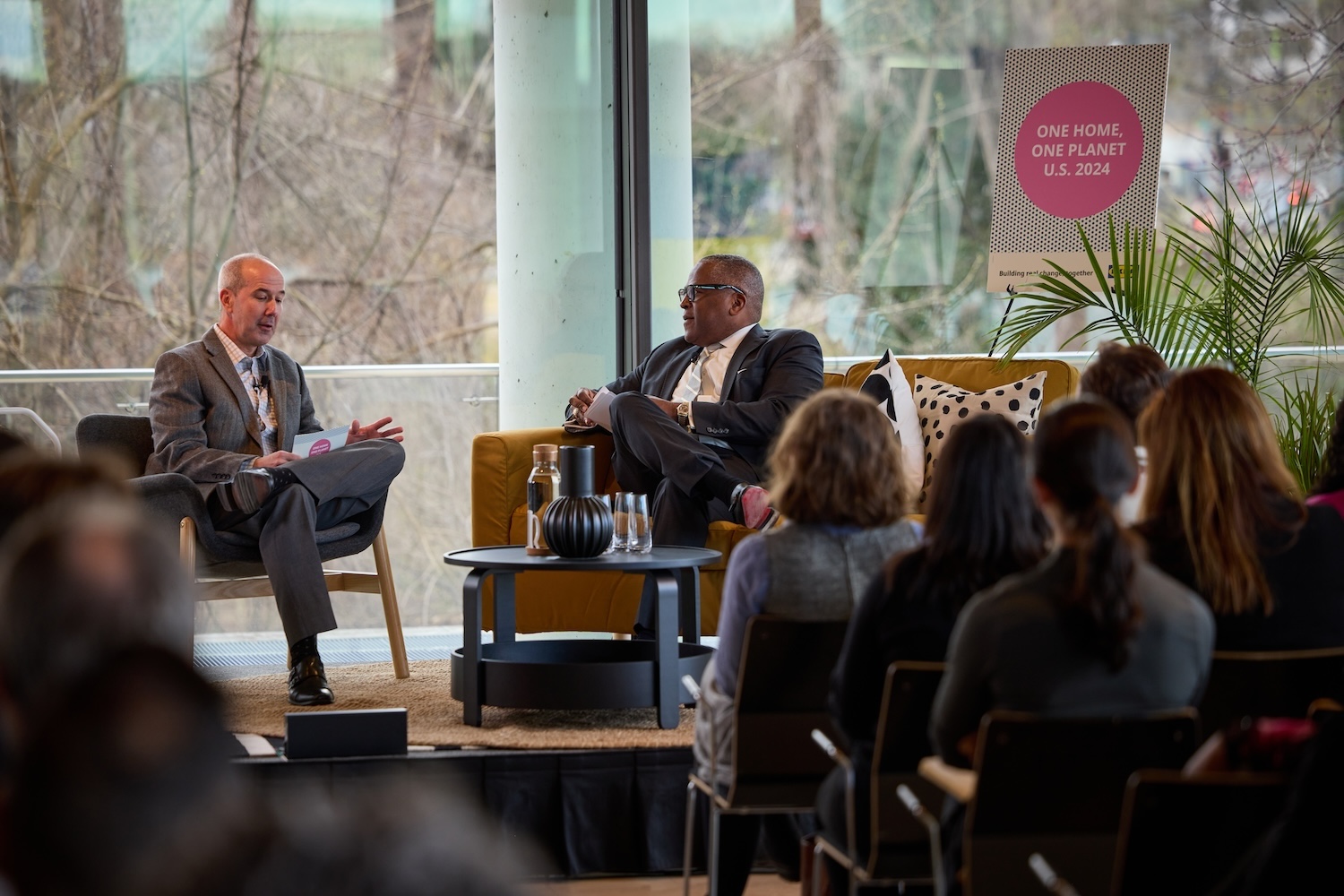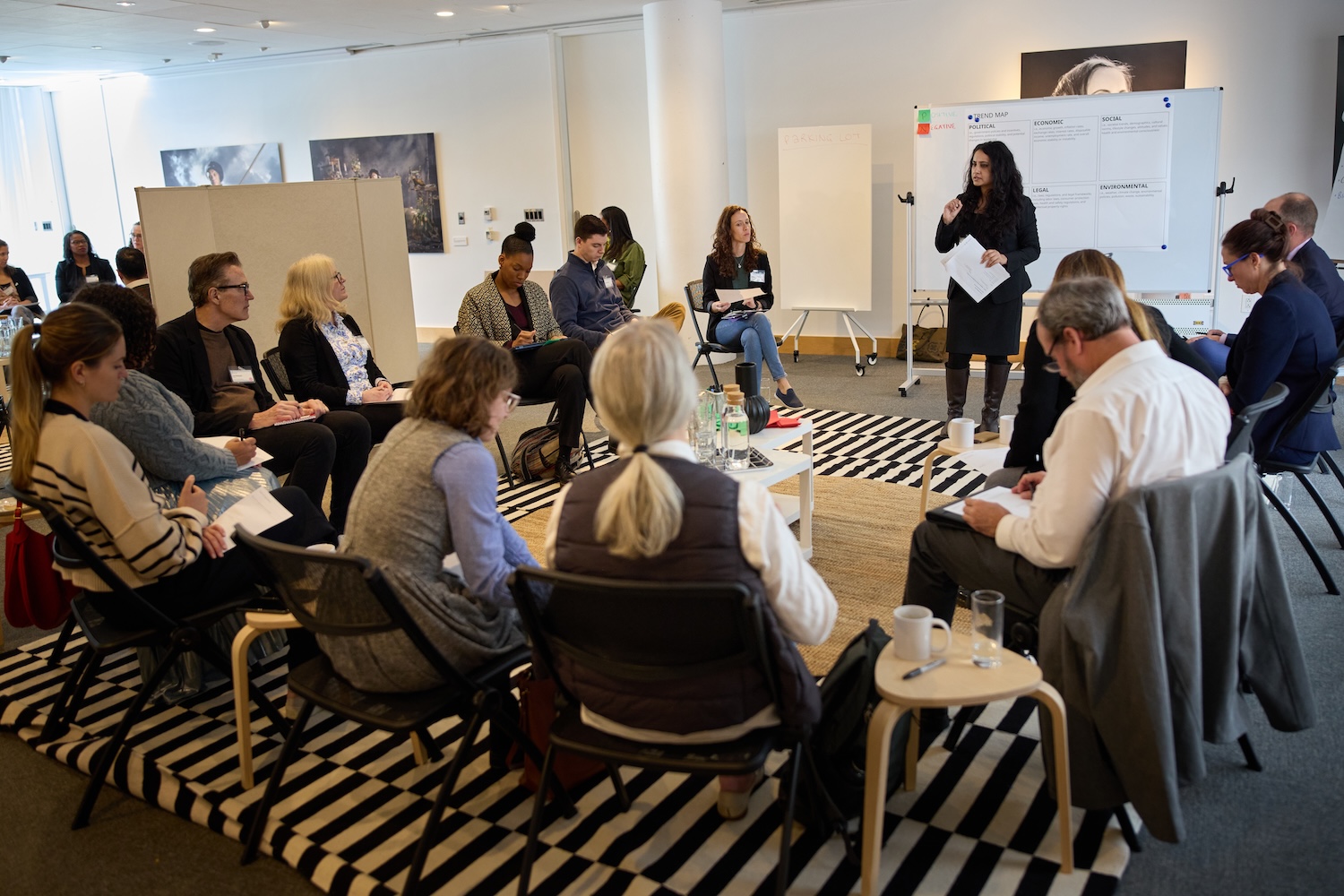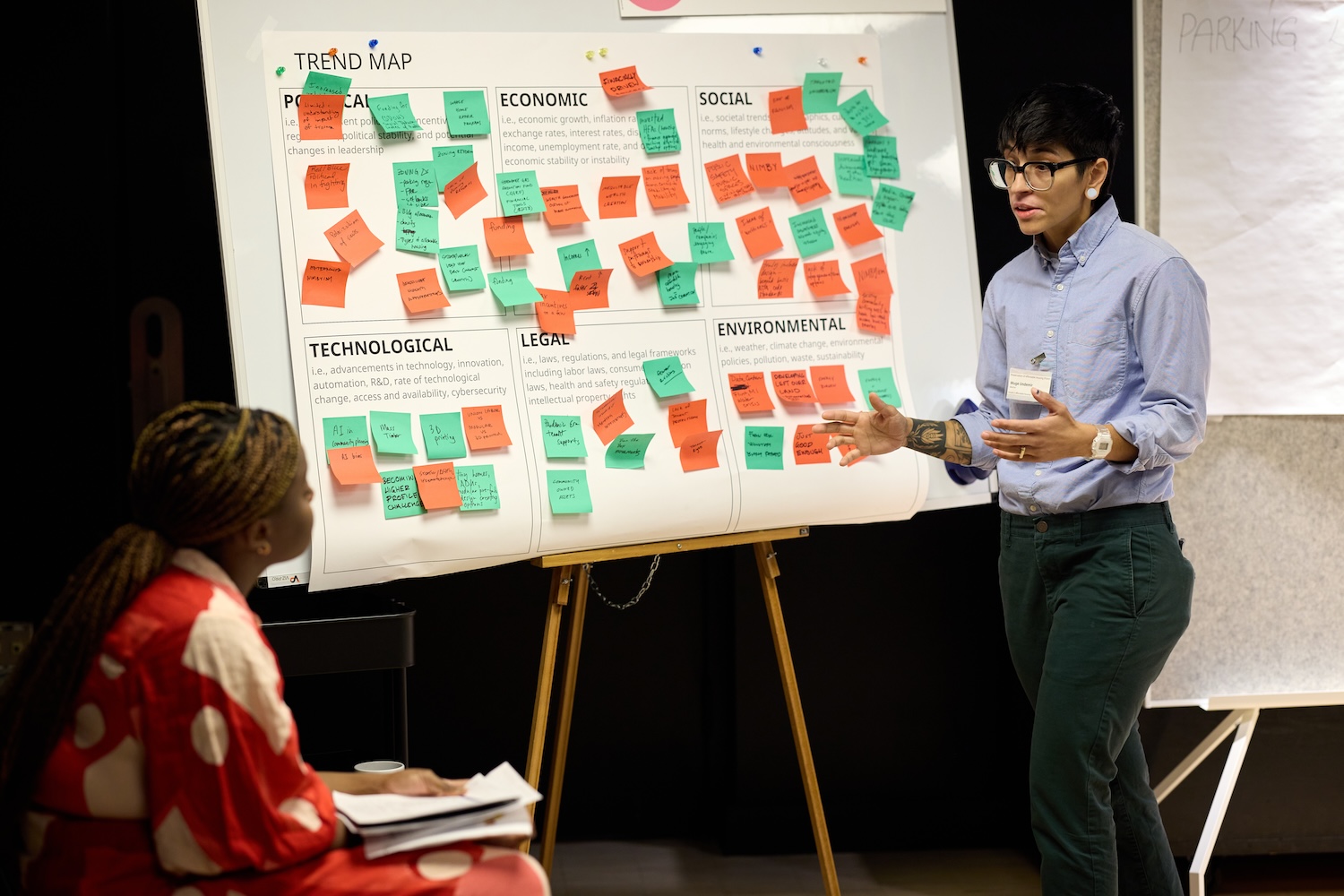
Javier Quiñones, CEO and chief sustainability officer for Ikea U.S., speaks at the One Home, One Planet U.S. event in Washington, D.C. (Image courtesy of Ikea U.S.)
The projected global revenue from shifting to a circular economy is expected to increase from $339 billion in 2022 to $712 billion in 2026. The emphasis on regenerative resources, material circulation and eliminating waste at the core of this economic model requires changing the way products are consumed and, ultimately, the way businesses operate.
This isn’t a new observation for Ikea. The global home furnishing company aims to become a circular and climate-positive business by 2030. Building on its vision to improve everyday life for people and create a positive global impact, Ikea recently brought leaders together to envision a better and more sustainable future.
One Home, One Planet U.S. 2024: Developing collaborative solutions
Ikea U.S. hosted its second One Home, One Planet U.S. event at House of Sweden in Washington, D.C. last month. Nonprofit organizations, political leaders, entrepreneurs and corporate professionals in the sustainability field came together to discuss challenges and opportunities related to climate action, inequality and resource shortages. The goal of the two-day event was to inspire action, as it did for Ikea and guests of the last One Home, One Planet U.S. event in 2022.
"One Home, One Planet has created a lot of these movements,” Javier Quiñones, CEO and chief sustainability officer for Ikea U.S., said in his opening remarks at the event. “Many of the actions that were put in place are because of inspirations that we have had in the past. Our Buy Back and Resell program is something that came from One Home, One Planet in 2019, and now it's a service that we offer all over the world. So, imagine the power of these gatherings.”

Ikea brings ideas to execution at One Home, One Planet U.S.
The One Home, One Planet U.S. event was split into a series of town hall panels and co-lab sessions — where leaders shared their unique perspectives on public and private interventions that power a more sustainable future, and attendees broke into groups to discuss them.
One town hall, for example, focused on addressing public policy. Former Columbia, South Carolina, Mayor Stephen K. Benjamin, assistant to the president, senior advisor to the president and director of the White House Office of Public Engagement, filled the audience in on the Biden administration’s sustainability and environmental justice efforts, the impacts they have and how businesses and other stakeholders can get involved. "Every opportunity there is to potentially celebrate a huge success for Ikea [around sustainability and social impact], that also is a huge success for the administration,” Benjamin said.
During the co-lab sessions, attendees were divided into groups to discuss core topics related to the insights shared in the town halls, specifically around ideas and solutions for the circular economy, affordable housing and clean construction.

Throughout the second day of the event, attendees completed a series of strategy activities such as trend maps, identified challenges and opportunities close to their topics and created desired future statements to develop practical ideas that would turn their desired future into reality. The co-lab topics align with Ikea’s overall strategy and vision, with an eye toward what the company can learn from what’s discussed.
Next steps for the company following the event include gathering insights and ideas shared by attendees and translating them into plans for future action, both within Ikea and externally via continued cross-sectoral collaboration. "We don't know everything, but we all know a little bit, and when we come together, magic happens,” Quiñones said.

People and planet are ingrained in the Ikea ethos
This type of learning-and-doing model is just one way Ikea looks to embed sustainability across all areas of the business. In addition to the Buy Back and Resell program that gives used furniture a second life, the company has developed strategies to reduce emissions and implement renewable energy sources to achieve its goal of becoming a climate positive business by 2030 — specifically in its supply chain operations.
To date, 25 of the company’s global retail markets operate with 100 percent renewable electricity, and 408 additional factories and suppliers use 100 percent renewables. In its fiscal year 2023 (September 2022 – August 2023), Ikea U.S. collectively generated more renewable energy than its locations consumed. It also installed public electric vehicle chargers at several U.S. stores and plans to install an additional 500 public chargers and 300 fleet chargers within the decade across its U.S. locations.
In fiscal year 2023, Ikea U.S. also granted more than $2.5 million in donations to nonprofits that work toward social change. More specifically, it donated over $50,000 from sales of its Storstomma rainbow shopping bags to True Colors United, a nonprofit organization focused on the unique experiences of LGBTQ+ young people experiencing homelessness. Ikea U.S. also partners with the American Red Cross and has provided numerous financial donations including its most recent contribution of $150,000 in relief efforts for the Maui wildfires.
"We know that climate change does not affect everyone in the same way,” Quiñones told the audience at One Home, One Planet U.S. “And many of the people who are affected are actually the ones who have nothing to do with climate change.”
By hearing from those impacted and those with the vision for a brighter future, companies like Ikea can improve on what they already do and implement the new systems we need to realize a more regenerative, circular and climate resilient economy.
This article series is sponsored by Ikea U.S. and produced by the TriplePundit editorial team.

Rasha is a freelance writer with experience in communications, marketing, and program management. She is a Toronto Metropolitan University's School of Journalism graduate and has worked on various media and communication campaigns across both nonprofit and private sectors. Rasha is passionate about storytelling for impact, whether she focuses on social enterprise, transforming our food system or making the business world more inclusive.














